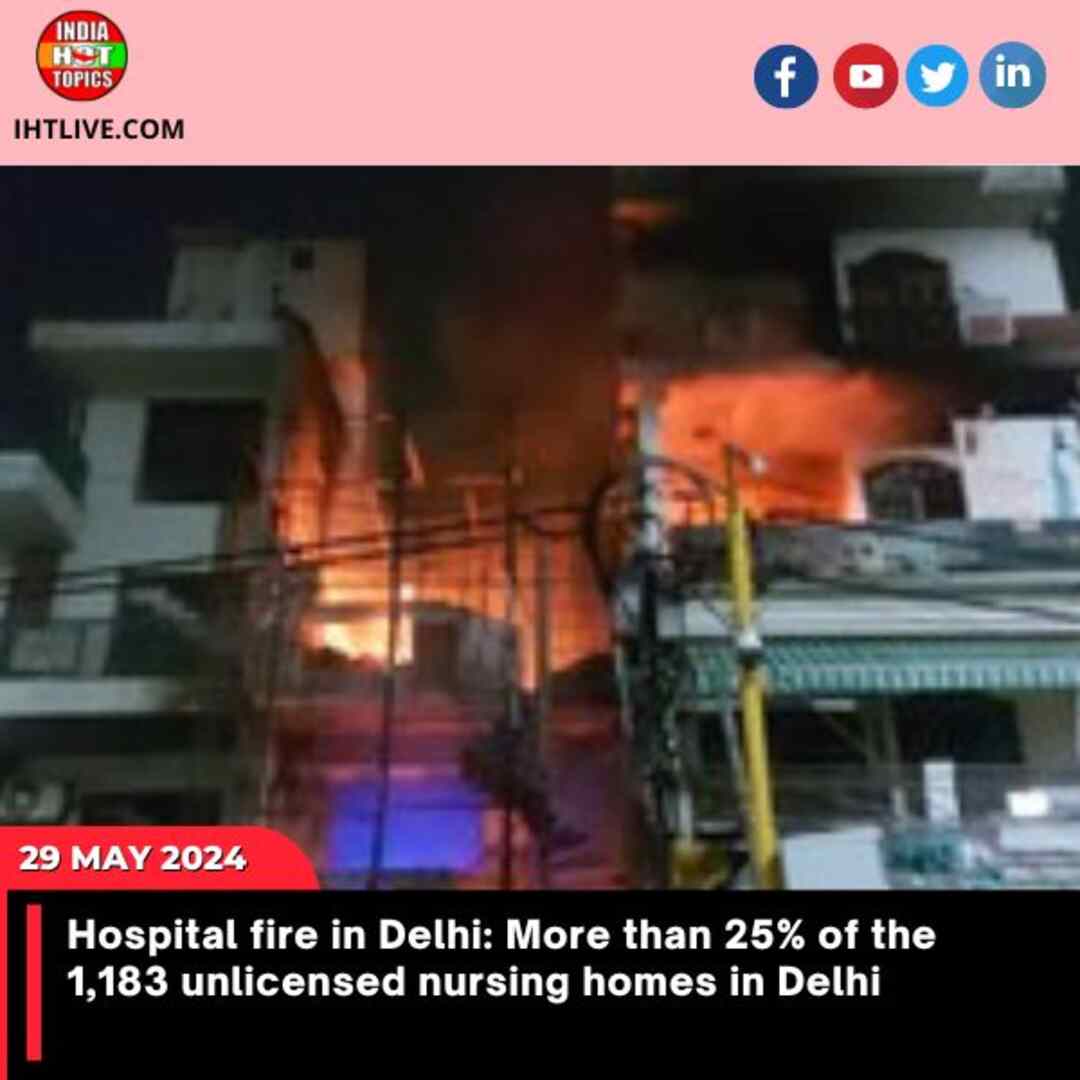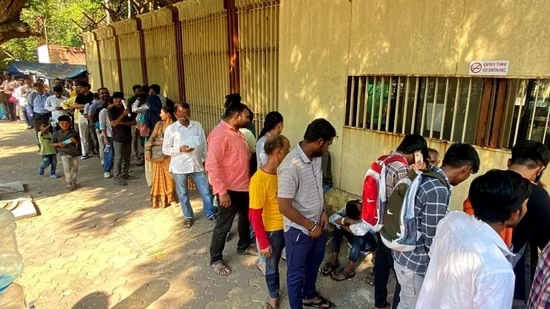DELHI
Delhi University Hostel on Visit: “Conduct… Beyond Dignity” by Rahul Gandhi

Title: “Conduct… Beyond Dignity: Exploring Delhi University Hostel on Visit”
Introduction:
Delhi University (DU) is renowned not only for its academic excellence but also for its vibrant campus life. One aspect that shapes this campus experience is the university hostels. These hostels serve as a home away from home for students pursuing their dreams at one of India’s premier educational institutions. Recently, Rahul Gandhi, an eminent politician and leader, paid a visit to one of these hostels and shared his thoughts on the living conditions and the overall conduct within the premises. In this blog, we delve into the significance of the visit and reflect on the crucial aspects highlighted by Mr. Gandhi.
Understanding the Significance:
Rahul Gandhi’s visit to the Delhi University hostel holds immense importance due to his influential role in shaping public opinion and driving policy changes. His observations and opinions shed light on the living conditions and conduct of students, which play a crucial role in shaping their overall university experience. By highlighting the areas that require attention, this visit can potentially initiate a discourse on improving hostel facilities and enhancing the well-being of the students.
Living Conditions and Infrastructure:
One of the primary concerns addressed by Rahul Gandhi during his visit was the living conditions in the Delhi University hostels. The need for comfortable living spaces, well-maintained facilities, and hygienic surroundings was emphasized. Dilapidated infrastructure, lack of adequate sanitation, and overcrowding were among the issues highlighted. By bringing these issues to the forefront, Mr. Gandhi draws attention to the need for better infrastructure and facilities to ensure a conducive living environment for the students.
Gender Equality and Safety:
Gender equality and safety are paramount in any educational institution, and Mr. Gandhi’s visit also shed light on these important aspects. The presence of proper security measures, strict vigilance, and sensitization programs were highlighted as essential components of a safe and inclusive hostel environment. Addressing gender-based discrimination and ensuring the safety of all students, regardless of their gender, is crucial for fostering a healthy learning environment.
Mental Health and Well-being:
Rahul Gandhi also stressed the significance of mental health and well-being among students during his visit. He recognized the need for accessible mental health support systems within the hostels. In an increasingly competitive academic environment, students often face immense pressure and stress. Having counseling services, support groups, and awareness campaigns can greatly contribute to addressing the mental health challenges faced by students and fostering a supportive community.
Student Engagement and Leadership:
The visit highlighted the importance of encouraging student engagement and fostering leadership within the hostels. Rahul Gandhi emphasized the significance of student-led initiatives, cultural activities, and sports events to promote a holistic development experience. Providing platforms for students to express their talents and hone their skills not only enhances their personal growth but also builds a strong sense of community and camaraderie.
Conclusion:
Rahul Gandhi’s visit to a Delhi University hostel highlighted various aspects that are crucial for creating an enriching and dignified hostel experience for students. By shedding light on issues related to living conditions, infrastructure, gender equality, safety, mental health, and student engagement, he drew attention to the areas that require immediate attention. The visit serves as a call to action for the university administration, policymakers, and stakeholders to work collaboratively in addressing these concerns and providing students with an environment conducive to learning, growth, and well-being.
Improving the hostel experience not only benefits the current students but also lays the foundation for future generations. As a society, it is our responsibility to ensure that students pursuing higher education have access to facilities and an environment that nurtures their aspirations, respects their dignity, and prepares them to become responsible citizens of the nation. Through constructive dialogue and concerted efforts, we can transform the Delhi University hostels into spaces where conduct goes beyond dignity
General News Platform – https://ihtlive.com/
Entertainment News Platforms – anyflix.in
Construction Infrastructure and Mining News Platform – https://cimreviews.com/
Podcast Platforms – https://anyfm.in/
India
The Delhi government petitions the Supreme Court to get additional water from nearby states.

Amid a serious water crisis in the nation’s capital, the Delhi administration sought the Supreme Court on Friday to obtain extra raw supplies from nearby Haryana, Uttar Pradesh, and Himachal Pradesh.
Arvind Kejriwal, the chief minister of Delhi, asserted earlier in the day that the states bordering the capital had cut back on water supplies.
The people of Delhi will be extremely grateful to the BJP for taking this move if it manages to secure some water for the city for a month by speaking with the governments of UP and Haryana. Nobody can control the intense heat like this. Can we, however, save the people from this if we band together? Kejriwal shared something on social media site X.
The Delhi government has implemented strict measures due to the worsening water crisis, such as fining ₹2,000 “on anyone found wasting water and shall disconnect any illegal water connection on construction sites or commercial establishments.”
Delhi’s water problem has gotten worse as a result of the temperature that hasn’t let up, forcing locals to hurry to the water trucks with empty buckets. Atop the water tanker at Chanakyapuri’s Vivekananda Colony, men, women, and children climbed.
The same situation arises every year, according to Rahul Kumar, a resident of Burari in North Delhi, and “people have to fight with each other.”
Not all individuals can purchase water. After waiting for the tanker all day, we finally manage to get the water. Although it’s difficult in this heat, water is the most essential item for humans,” he continued.
According to Rudal, a resident of the Geeta community, “The fact that there is only one tanker arriving and the colony is so large has turned into a major issue. Two applications have been submitted to the government, but who takes the poor people seriously? To drink the water, we must purchase it. It costs us 20 rupees for one bottle.
General News Platform – https://ihtlive.com/
Entertainment News Platforms – anyflix.in
Construction Infrastructure and Mining News Platform – https://cimreviews.com/
Podcast Platforms – https://anyfm.in/
India
Hospital fire in Delhi: More than 25% of the 1,183 unlicensed nursing homes in Delhi

The Baby Care New Born hospital in Vivek Vihar, East Delhi, had a big fire that killed six newborns and injured five more. The hospital’s licencing expired on March 31, two months ago, but it’s not the only one that’s still in operation.
Out of the 1,183 registered nursing homes in the capital, data from the Delhi government’s health department reveals that 340 (28.74%) have had their registrations expire, some of them as long as six years ago. West and Northwest Delhi are home to the greatest concentration of these facilities operating with expired permits. There are two of them at Vivek Vihar, the location of the incident; nine more are located nearby.
According to the status report, the permits for eight more establishments expired in March 2019 and the licences for two, Ardent Ganpati Hospital in Mundka and Indra Clinic & Test Tube Baby Centre in Patel Nagar, expired in March 2018. When contacted, a few of the institutions offered the typical justifications: bureaucracy, financial difficulties stemming from Covid, absence of a fire NOC, which is a need for acquiring licences, and a review of their renewal process.
Of the 288 nursing homes in West Delhi, 33.3% (or 96 units) have expired in terms of their registration. Northwest has 194 licences, 48 of which are expired (24.7%). There are 94 nursing facilities in East Delhi, with 25 violators (26.6%); 102 in Southwest Delhi, with 29 expired licences (28.4%); and 94 in South Delhi, with 25 (26.6%) of their permits having expired.
The situation is better in Central and New Delhi, where there are 63 and 23 nursing homes, respectively, of which 17 and 2 have expired. A senior health department official verified the information on condition of anonymity, and HT has seen a copy of the status report that contains the data.
Citing that “more than quarter of nursing homes in Delhi are operating without valid registration” and that “even those nursing homes with registration may not be meeting the safety and regulatory standards,” Delhi LG VK Saxena on Tuesday ordered an investigation by the anti-corruption bureau into the registration process of nursing homes in the city.
The Delhi Nursing Home Registration Act, 1953, governs the registration and management of the operations of the city’s nursing homes by the directorate general of health services (Delhi government)’s nursing home cell. It is required of the cell to register these units and renew their registration every three years.
Infant deaths in Delhi: Staff called, but not the police, minutes after the fire
According to the May 7, 2024 report from the nursing home cell, at least 119 additional nursing homes, including the Vivek Vihar facility, had permits that expired on March 31, 2024, two months ago. Additionally, 133 nursing homes have registrations that expired in March 2023. And 65, whose permits came to an end in March 2020.
These nursing homes range in size from tiny establishments with two beds to larger ones with seventy beds, which would practically convert them into hospitals. The study also states that 98 of the 340 permit holders whose licences have expired still have to pay the renewal or cancellation fees.
The AAP government in Delhi cited the bureaucracy of the city-state, which answers to the LG.
According to Saurabh Bhardwaj, Minister of Health, the Secretary of Health has not yet reported for work. The information is available with the department and is not directly available to me, thus I am unable to offer it, he continued.
When asked for reaction, the health secretary remained silent.
Delhi baby deaths: Employee claims that immediately the fire started, all on-duty personnel left.
An employee who answered the phone at Aggarwal Charitable Hospital in Shakti Nagar, North Delhi, stated that they were unable to renew the registration due to a lack of a NOC (no-objection certificate) from the fire department. The hospital’s license expires in March 2020. “We don’t have an active license because the hospital building is very old and was constructed before the current fire policy was established, and fire NOCs are now required for license applications submitted after 2020.”
“We are in contact with the authorities,” he continued, adding that they lacked the resources to rebuild in accordance with the new guidelines.
A doctor who wished to remain anonymous answered the phone at Satayanand Medical Centre in Tagore Garden, whose licenses expired four years ago, and stated that the “licence was under review and documentation work was underway”.
Infant fatalities in Delhi: LG directs ACB to look into nursing homes’ registrations
A doctor at the Sharad Nursing Home in Nangloi stated that the facility was inspected by DGHS around six months prior. The facility’s license expired in 2020. The physician blamed the Covid epidemic for the absence of rejuvenation. “We possess all the paperwork required to operate the facility. We were severely impacted by COVID, and at one time we had to close our nursing home before reopening it when things improved,” he stated.
The license of the Temple Nursing Home in Daryaganj, which expired in 2020, is currently being reviewed, according to a representative who answered the hospital’s phone. She continued, “We have applied for a license renewal because we are a very old hospital.”
Lastly, a physician at Ashok Vihar’s Maharaja Agarsain Hospital (Charitable) contested the report’s stated status. “We shouldn’t be on this list because we have all the necessary licenses in place.”
General News Platform – https://ihtlive.com/
Entertainment News Platforms – anyflix.in
Construction Infrastructure and Mining News Platform – https://cimreviews.com/
Podcast Platforms – https://anyfm.in/
AAP leader
AAP leader warns Delhi to be run from jail amid fear of Arvind Kejriwal’s arrest.
.jpg)
“AAP Leader’s Warning: The Specter of Delhi’s Governance from Behind Bars”
Introduction
The world of politics is often marked by drama, intrigue, and the unexpected. In a recent turn of events, an Aam Aadmi Party (AAP) leader has issued a warning that Delhi may be governed from behind bars, raising concerns over the potential arrest of the party’s prominent leader, Arvind Kejriwal. In this blog, we will delve into the context and implications of this warning and what it signifies for the political landscape in the capital city of India.
The AAP’s Unique Journey
The Aam Aadmi Party (AAP) has had a remarkable journey in Indian politics. Founded on the principles of transparency, anti-corruption, and common people’s governance, the party’s rise to power in Delhi was a significant milestone. Arvind Kejriwal, the party’s leader, has played a pivotal role in this journey and has been a vocal advocate for clean and accountable governance.
The Fear of Arvind Kejriwal’s Arrest
The warning from the AAP leader highlights the ongoing tensions and legal battles surrounding Arvind Kejriwal. It is speculated that Kejriwal may face potential legal consequences, which could result in his arrest. This has raised concerns about the governance of Delhi, as Kejriwal currently serves as the Chief Minister of the city.
Implications of Governance from Jail
Governing from behind bars is an unprecedented situation and presents several potential challenges:
- Political Turmoil: The arrest of a sitting Chief Minister can lead to political chaos and instability in Delhi. It may spark protests and demonstrations from both supporters and opponents.
- Administrative Challenges: The absence of the Chief Minister from the day-to-day functioning of the government can disrupt the administration and delivery of public services.
- Legal Battles: Kejriwal’s legal battles and court appearances may divert his attention and resources from his administrative responsibilities.
- Public Opinion: The situation can significantly impact public opinion, with some rallying behind Kejriwal and others questioning the AAP’s ability to govern effectively amid legal troubles.
- Elections Looming: Delhi is scheduled for state elections in the near future. The political landscape may be altered if Kejriwal is unable to campaign and lead his party effectively.
The Path Forward
The situation surrounding Arvind Kejriwal’s potential arrest is complex and uncertain. The legal process will play out, and its outcome will determine the course of action. In the meantime, it is essential for all political stakeholders, citizens, and institutions to uphold the principles of democracy, rule of law, and due process.
Conclusion
The warning about Delhi being governed from jail is a stark reminder of the complexities and challenges that can arise in the world of politics. Arvind Kejriwal’s legal battles and the potential implications for Delhi’s governance add an extra layer of intrigue to the city’s political landscape. As the situation unfolds, the world will be watching to see how the principles of democracy and justice play out in the nation’s capital.
General News Platform – https://ihtlive.com/
Entertainment News Platforms – anyflix.in
Construction Infrastructure and Mining News Platform – https://cimreviews.com/
Podcast Platforms – https://anyfm.i
-

 India11 months ago
India11 months agoThe afternoon briefing revealed that 97.26% of the ₹2000 notes were returned, and the Israeli Prime Minister committed to war goals.
-

 World4 months ago
World4 months agoMichigan splash pad attack: A couple was shot seven times in total while defending their two small daughters.
-

 Business2 years ago
Business2 years agoSrikanth Venkatachari is appointed as the new chief financial officer by Reliance Industries.
-

 Entertainment1 year ago
Entertainment1 year agoNew Season 8 The Walking Dead trailer flashes forward in time
-

 India1 year ago
India1 year agoPM Modi’s Three-Nation Tour Begins with a Traditional Welcome in Papua New Guinea
-

 India Hot Topics1 year ago
India Hot Topics1 year agoCenter ‘busts’ 8 YouTube channels for distributing false information.
-

 Business7 years ago
Business7 years agoThe 9 worst mistakes you can ever make at work
-

 Fashion7 years ago
Fashion7 years agoThese ’90s fashion trends are making a comeback in 2017







